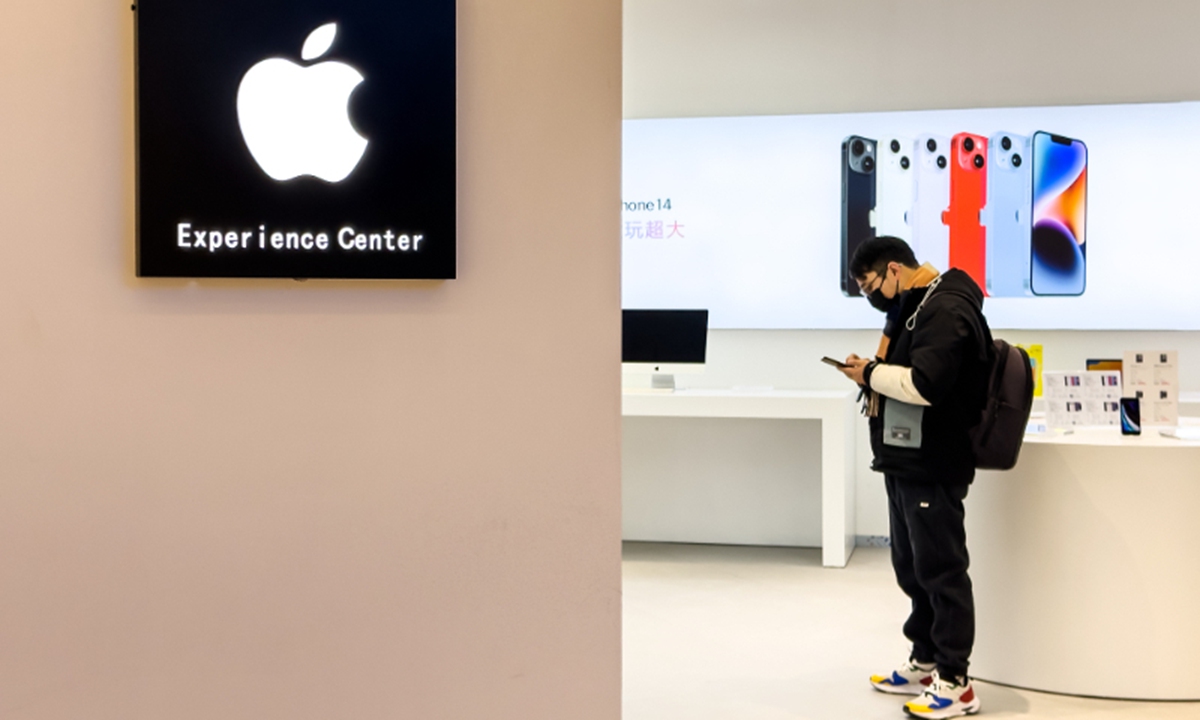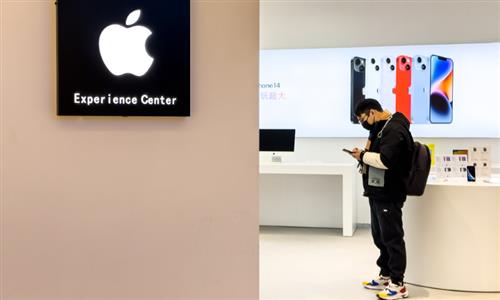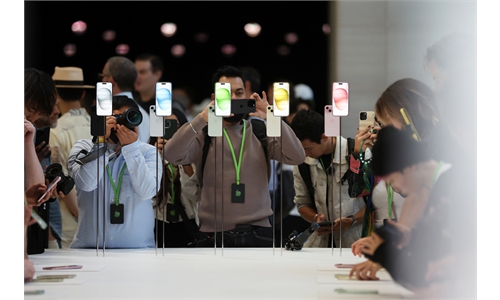
Photo: VCG
The biggest destroyer of the global economic and trade order is being paranoid. This is perhaps the most incisive and vivid explanation of why the US government and media outlets have seen a rumored ban on iPhones as China's retaliation against the US.US National Security Council spokesman John Kirby told reporters on Wednesday that the US believes China's reported move to institute and expand a government ban on iPhones "seems to be of a piece - of the kinds of aggressive and inappropriate retaliation to US companies ... That's what this appears to be," according to a Bloomberg report on Thursday.
Not only did the US official say it's retaliation, but US media outlets have hyped the rumored government ban and misinterpreted it as China's retaliation against Apple for the sake of Huawei.
But there are no laws, regulations or policy documents in China that prohibit the purchase and use of mobile phones of overseas brands, such as Apple. And compared to the situation faced by Apple in China, Huawei is far from receiving fair treatment in the US.
With no specific and detailed facts to verify the existence of such a ban, we have no idea why the US government and media outlets are so eager to escalate an unverified rumor as being China's retaliation. They could have communicated with the Chinese authorities first to clear up any misunderstandings. If they insist on making a political interpretation of a rumor, then the only reason is because they know they have done too many unconscionable things to suppress Chinese companies with unilateral sanctions, and they are too anxious and concerned about retaliation now. The concern in Washington is not toward Apple, but rather toward the sustainability of their unethical business practices.
There is no denying that after a series of security incidents involving Apple's iPhones, it is possible that some consumers, and not just in China, may be concerned about whether or not iPhones have higher security risks.
It will take time and facts for global consumers to find out whether iPhones have security risks. But one thing is certain - as long as Apple abides by Chinese laws and regulations and operates based on the rules of the international order, protecting consumers' data stored in their mobile phones to ensure information security, it would not face any policy barrier in China.
Despite some potential consumer concerns, US tech companies are doing pretty well in China. For instance, China overtook the US to become Apple's largest market in the second quarter of this year for the first time, according to research firm TechInsights. Also, Tesla's revenue in China reached $5.73 billion in the second quarter, up 51.33 percent year-on-year. The growth rate apparently outpaced the increase of its revenue in other global markets.
If anything, US sensitivity to a rumored ban only lays bare its anxiety about losing the market. Deep down, the root cause is that it knows what it has done to Chinese companies would arouse retaliation if it happened to US companies.
Indeed, US media outlets may not even be able to tell which American move the rumored Chinese ban on iPhones is in retaliation for, because there are too many cases of the US suppressing Chinese companies and products in the name of "national security."
Why didn't US media outlets question their own government's behavior, which sabotaged the international trade order in the first place? How brazen are they to label China as the party that retaliated without mentioning what the US did first?
To name a few issues, the US did not just impose strict sanctions on Huawei but also asked its allies to do the same. It exerted pressure on TikTok to force a sale of shares to American companies with hooligan means. Washington has also used so-called human rights issues as an excuse to sanction Chinese manufacturing sector and Chinese companies.
If Washington is really worried about Chinese retaliation and US companies' interests, why not reflect on what the US has done to China and its companies? Putting aside political calculations, which are not in the interest of bilateral economic relations, and returning to the path of seeking the right solution, is the most effective therapy for Washington's paranoia and anxiety.



